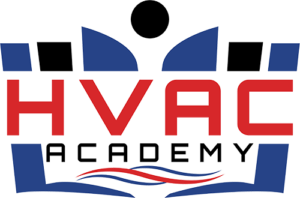The demand for skilled HVAC (Heating, Ventilation, and Air Conditioning) professionals continues to grow as businesses and homeowners prioritize energy-efficient systems. Enrolling in an HVAC academy can pave the way for a rewarding career in this thriving industry. However, not all academies offer the same quality of education and training. To make the best choice, it’s essential to consider several key factors before enrolling.
1. Accreditation and Reputation
The first step in evaluating an HVAC academy is to check its accreditation and reputation.
- Accreditation: Ensure the academy is accredited by a recognized body, such as HVAC Excellence or the Partnership for Air-Conditioning, Heating, Refrigeration Accreditation (PAHRA). Accreditation ensures that the curriculum meets industry standards.
- Reputation: Look for reviews, testimonials, and job placement success rates to gauge the academy’s credibility and track record.
2. Comprehensive Curriculum
A well-rounded HVAC program should cover both theoretical knowledge and hands-on training.
- Core Topics: Ensure the program includes key subjects like system design, installation, maintenance, troubleshooting, and energy efficiency.
- Emerging Technologies: Look for courses that address advancements in HVAC, such as smart thermostats, energy management systems, and eco-friendly refrigerants.
- Certifications: Confirm that the academy prepares students for essential certifications, such as EPA Section 608 Certification and North American Technician Excellence (NATE).
3. Hands-On Training Opportunities
HVAC is a practical field that requires hands-on experience to master.
- Lab Facilities: Choose an academy with well-equipped labs that simulate real-world scenarios.
- Internships and Apprenticeships: Look for programs that partner with local businesses to offer on-the-job training.
- Industry-Standard Tools: Ensure the academy provides access to the latest HVAC tools and equipment for practice.
4. Experienced Instructors
The quality of instruction significantly impacts your learning experience.
- Industry Experts: Instructors should have years of professional HVAC experience.
- Teaching Credentials: Check for certifications or degrees that qualify instructors to teach.
- Student Support: Instructors should be approachable and willing to provide personalized guidance.
5. Job Placement Assistance
One of the main goals of enrolling in an HVAC academy is securing employment after graduation.
- Career Services: Look for academies that offer resume writing assistance, interview preparation, and job search support.
- Industry Connections: An academy with established relationships in the HVAC industry can help students find job opportunities more easily.
- Alumni Network: A strong alumni network can provide mentorship and job referrals.
6. Cost and Financial Aid Options
HVAC training programs can vary significantly in cost, so it’s important to assess your budget and explore funding options.
- Tuition Fees: Compare the cost of tuition across academies and consider what’s included, such as tools or certification exam fees.
- Financial Aid: Check for scholarships, grants, or student loan options to make training more affordable.
- Return on Investment: Consider the potential earnings and career growth to ensure the program offers good value for your money.
7. Flexible Scheduling Options
If you’re balancing work or other responsibilities, flexibility is key.
- Full-Time vs. Part-Time: Some academies offer part-time programs to accommodate working students.
- Online and Hybrid Courses: Look for options that combine online theory lessons with in-person lab sessions.
- Program Duration: Consider the length of the program and whether it aligns with your career timeline.
8. Location and Accessibility
Proximity to your home or workplace can impact your decision.
- Commuting Distance: Choose an academy that’s convenient to travel to, especially for in-person training.
- Relocation Options: If the best academy is far away, check if the institution offers housing or assistance in finding accommodation.
9. Alumni Success Stories
Hearing from past students can give you a clear idea of what to expect.
- Employment Outcomes: Ask about the types of jobs alumni secured after graduation.
- Feedback: Look for alumni testimonials on the academy’s website or social media pages.
- Networking Opportunities: Strong alumni networks can connect you to industry professionals and job leads.
10. Continuing Education and Support
The HVAC industry evolves with new technology and regulations, so ongoing education is vital.
- Advanced Training: Check if the academy offers advanced courses for specialized skills.
- Lifetime Support: Some academies provide lifetime access to career services or refresher courses.
- Industry Updates: Look for programs that keep graduates informed about new certifications and industry trends.
Choosing the right HVAC academy is a crucial step toward building a successful career in the heating, ventilation, and air conditioning industry. By considering factors like accreditation, curriculum, hands-on training, and job placement support, you can make an informed decision that aligns with your goals.
Invest in a program that prepares you for today’s challenges and tomorrow’s opportunities, and start your journey toward becoming a skilled HVAC professional today! Contact us.



Leave A Comment